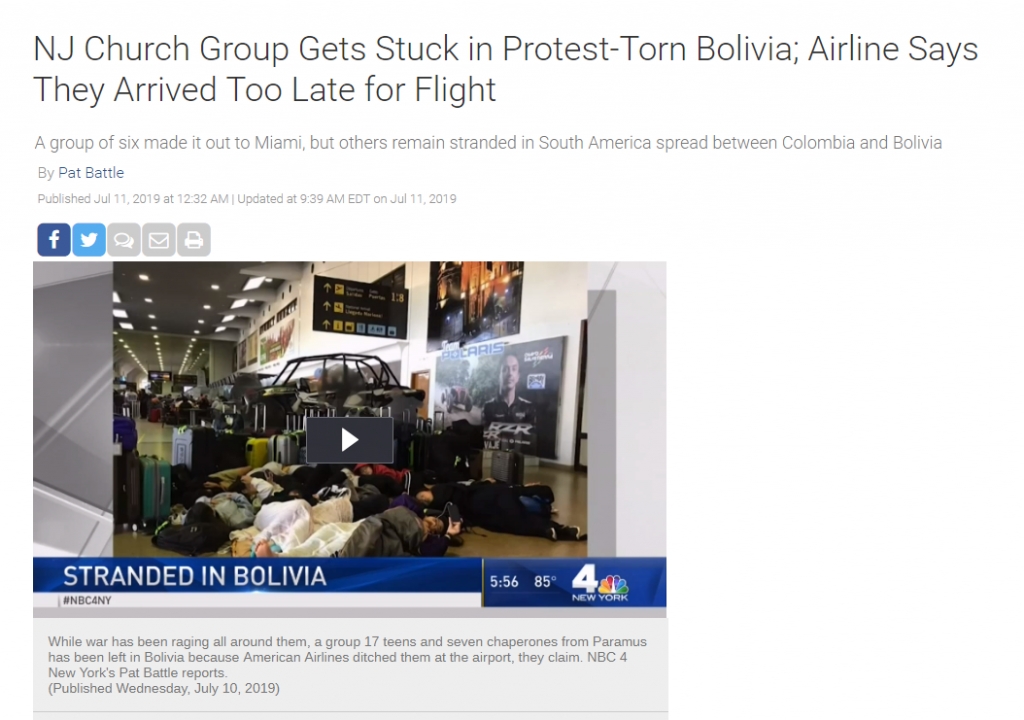There’s been a lot of press about the racist tweets of the current “occupant of the White House,” in which he told four women of color, all House Representatives, that they should “go home.” This public statement has been widely and rightly decried. But I want to address the second part of his comments, where he implies that these women come from places that are “totally broken and crime infested.” This narrative that Other Places in the World are violent and dangerous gets reinforced in unexpected places.
For example, a few days ago, NBC surprised many by falsely claiming that Bolivia is in a war. (Check the photo caption.)

Well that’s news to those I communicated with who are in Bolivia right now, not to mention many who commented directly on this article. Claiming that a country is “protest-torn” or that “war has been raging” is a serious thing.
This article does not state what city this group was in (even though Bolivia is a large country with many airports), but I am guessing they are in Santa Cruz. On July 9 there was a call for a general strike (paro civico) in Santa Cruz. For the most part, such strikes are non-violent marches and announced well in advance (for example, see this newspaper article from June 26). And not everyone was participating in the strike, either. And the airport was open. If this U.S. group has been traveling to Bolivia for a decade, their leaders should know how to deal with strikes.
Without additional information, it would seem that this group of voluntourists missed their flight. I’ve been in that situation; it’s no fun. Often one does get rerouted in those situations. And to be fair, it appears the parents’ main complaint is actually against the airline.
But NBC highlights the claim that this situation is the result of violence, which is a whole different story. With the decline of journalism, and especially on-the-ground international reporting, it appears that NBC simply accepts the reports of the parents (who are not in Bolivia) that their children were in danger. This is a questionable journalistic decision, given that many newspapers in Bolivia publish online in the second-most spoken language in the U.S. It is not a difficult thing to scan the local newspapers and see what local journalists are saying, at the very least.
NBC paints Bolivia — a country that most in the U.S. know next-to-nothing-about — as an unstable, violent place, rather than as a nation with political conflict (like most others, including the U.S.). This kind of press feeds into a larger metanarrative about Latin America as a whole. Bolivia and Honduras are widely different places in completely distinct situations, but there remains an underlying “us vs them” rhetoric here about implying that political protests elsewhere are equivalent to war.
This is relevant in our current political moment. U.S politicians have said with straight faces that being detained in conditions decried as “cruel, inhuman or degrading” by the U.N. humans rights chief Michelle Bachelet might still be better than where they are fleeing from. Journalists who claim an airport snafu (no matter how aggravating!) is due to “war” are feeding into irresponsible narratives about the situation in Latin America. Those narratives will have consequences long after this group of travelers returns home.